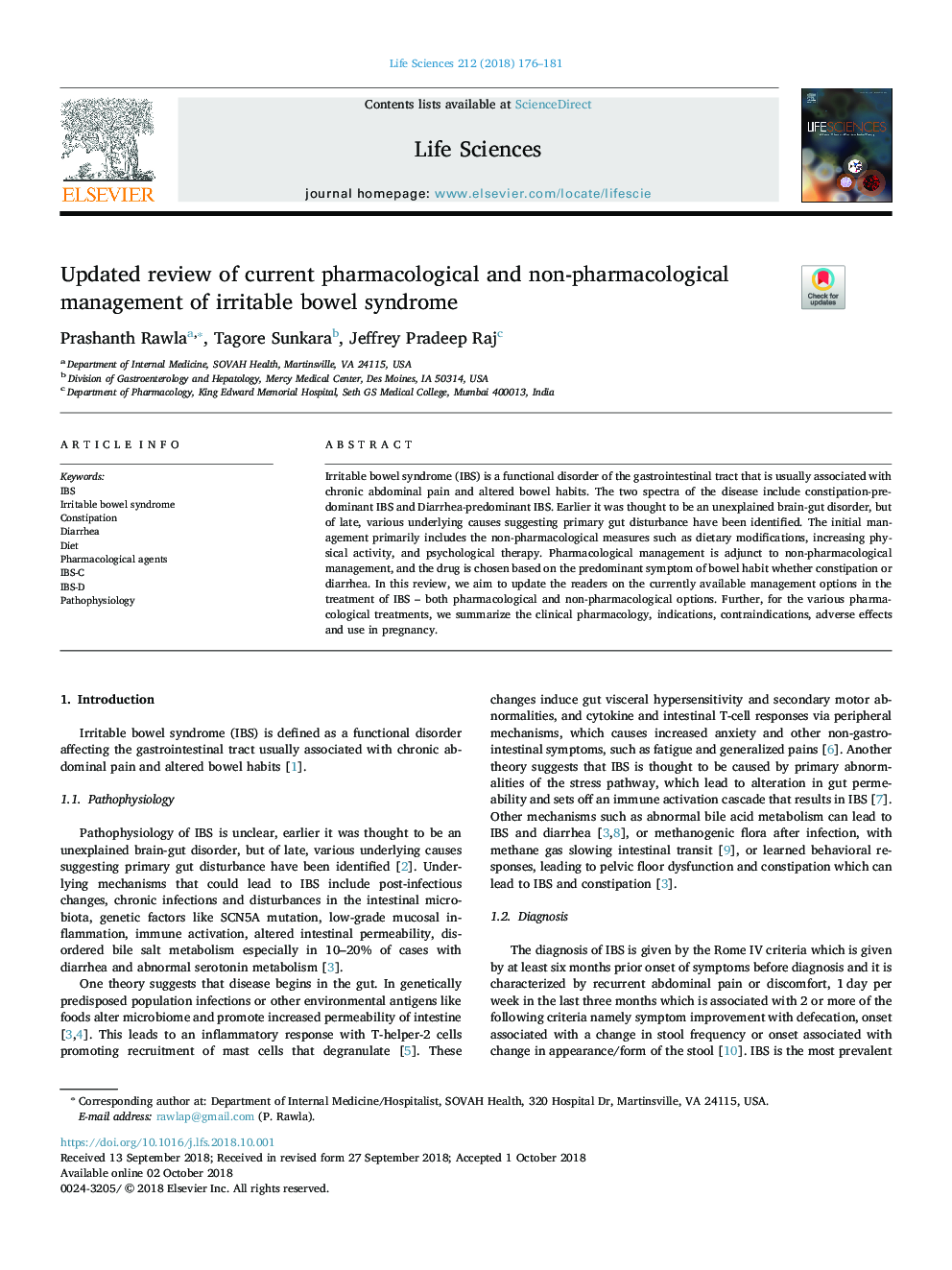| Article ID | Journal | Published Year | Pages | File Type |
|---|---|---|---|---|
| 11023101 | Life Sciences | 2018 | 6 Pages |
Abstract
Irritable bowel syndrome (IBS) is a functional disorder of the gastrointestinal tract that is usually associated with chronic abdominal pain and altered bowel habits. The two spectra of the disease include constipation-predominant IBS and Diarrhea-predominant IBS. Earlier it was thought to be an unexplained brain-gut disorder, but of late, various underlying causes suggesting primary gut disturbance have been identified. The initial management primarily includes the non-pharmacological measures such as dietary modifications, increasing physical activity, and psychological therapy. Pharmacological management is adjunct to non-pharmacological management, and the drug is chosen based on the predominant symptom of bowel habit whether constipation or diarrhea. In this review, we aim to update the readers on the currently available management options in the treatment of IBS - both pharmacological and non-pharmacological options. Further, for the various pharmacological treatments, we summarize the clinical pharmacology, indications, contraindications, adverse effects and use in pregnancy.
Keywords
Related Topics
Health Sciences
Medicine and Dentistry
Cardiology and Cardiovascular Medicine
Authors
Prashanth Rawla, Tagore Sunkara, Jeffrey Pradeep Raj,
